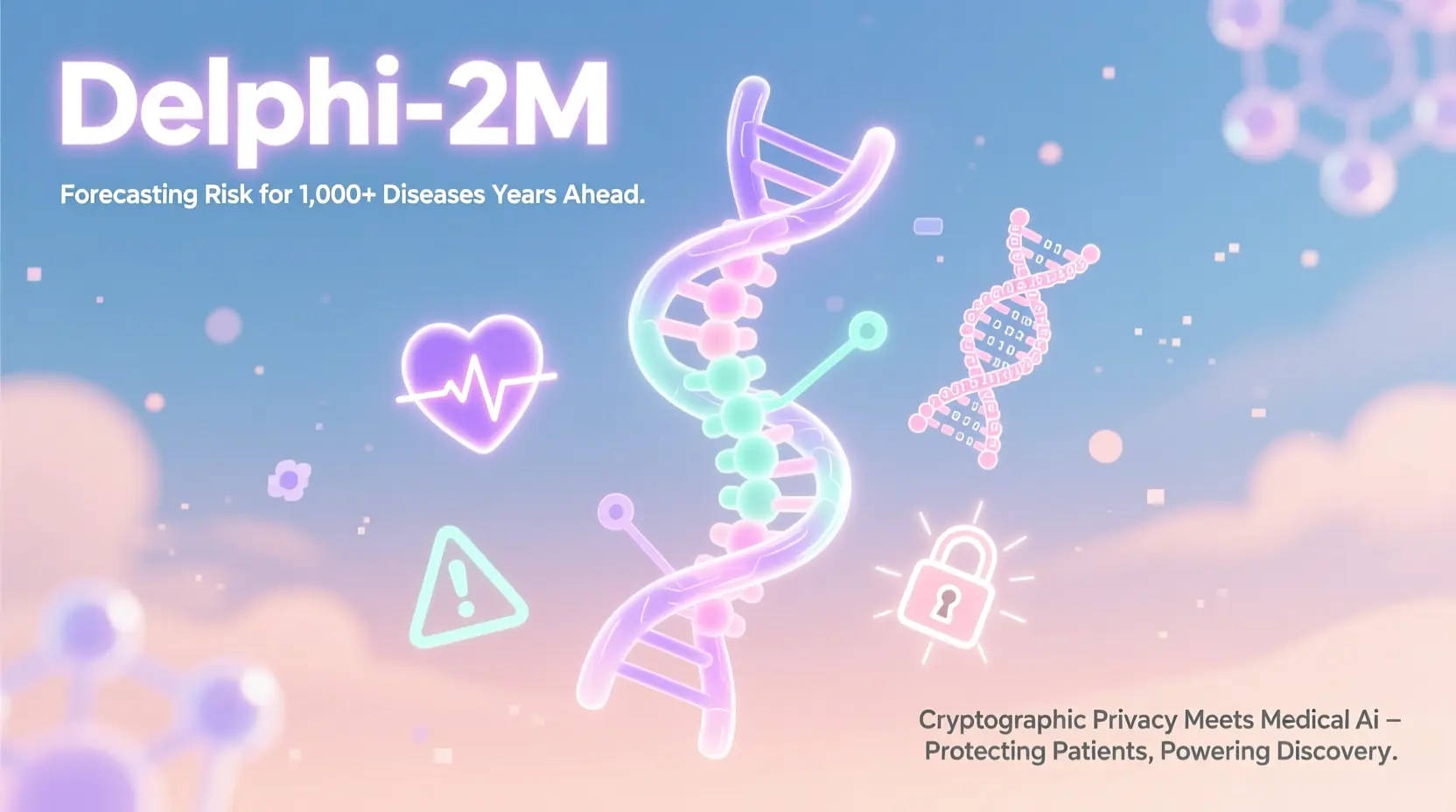In the fast-evolving landscape of health technology, the debut of Delphi-2M marks a defining moment for predictive medicine. Unveiled this September, Delphi-2M is an open-source artificial intelligence model capable of forecasting an individual’s risk for more than 1,000 diseases—stretching its predictions years, and sometimes decades, into the future.
What Is Delphi-2M?
Developed by an international consortium including the German Cancer Research Center, Delphi-2M leverages a transformer AI architecture—similar to those powering advanced chatbots—but is purpose-built for medical records. Instead of analyzing language, Delphi-2M treats medical diagnoses and events as “tokens” in each patient’s health history. By learning how these events unfold over time in hundreds of thousands of anonymized records, the model can spot subtle patterns that elude traditional risk tools.
Predicting the Future—Of Your Health
Given a patient’s prior diagnoses, treatments, and lifestyle factors, Delphi-2M can generate a statistical forecast for the likely timing and risk of their next major health event. The result? A timeline of possible conditions—pneumonia, heart failure, diabetes, and even death—with predicted probabilities. For diseases with well-understood progressions, Delphi-2M rivals or exceeds specialist calculators, but its superpower is breadth: it issues a broad “weather report” for thousands of diseases at once.
Safe, Secure, and Open
Openness is a core value behind Delphi-2M. Its code, model architecture, and synthetic datasets—statistically similar to real patients but privacy-compliant—are freely available on GitHub for anyone to use, adapt, or develop further. Direct access to real medical data, such as UK Biobank, requires formal applications and strict privacy safeguards. Delphi-2M’s synthetic data enables robust experimentation without breaching confidentiality.
The Future: Cryptographic Privacy for Medical AI
While Delphi-2M currently relies on synthetic data and strict access controls, emerging cryptographic technologies could revolutionize how medical AI models train and operate on sensitive data. Fully Homomorphic Encryption (FHE) theoretically enables AI models to train and make predictions directly on encrypted patient data, never exposing actual medical records even during computation. Combined with Digital Signature Algorithms (DSA), particularly quantum-safe variants like ML-DSA, medical AI systems could provide cryptographic guarantees of both privacy and authenticity—ensuring predictions come from verified, untampered models while maintaining absolute patient confidentiality.
This cryptographic approach could dramatically expand open-source medical AI development. Instead of requiring complex institutional approvals and synthetic data generation, researchers worldwide could collaboratively improve models like Delphi-2M using real encrypted medical data from multiple institutions. However, current FHE implementations face significant performance limitations—running 1,000-10,000 times slower than standard computation—making them impractical for large-scale transformer architectures processing 400,000+ patient records. As hardware acceleration and algorithmic improvements advance over the next decade, this cryptographic foundation could enable truly global, privacy-preserving medical AI research while maintaining the rigorous security healthcare demands.
Why Does This Matter?
Delphi-2M moves healthcare from reactive to proactive. By arming clinicians, hospitals, and policymakers with earlier intelligence about health risks, the model could help target preventive care, allocate resources efficiently, and inspire new forms of personalized medicine. For researchers, Delphi-2M’s synthetic data overcomes the bottleneck of data privacy, democratizing studies on disease risk and AI ethics.
What’s Next?
While Delphi-2M sets a new standard, it isn’t ready for clinical deployment yet. Researchers are working to integrate genomics, imaging, and real-time biomarkers into future versions, while validating them for safety and reliability. As AI tools like Delphi-2M mature, predictive, preventive, and universally accessible healthcare draws much closer.
Delphi-2M is a glimpse of tomorrow’s medicine: open, innovative, and focused on keeping people healthy, not just treating them when sick. The future, it seems, is looking a little more predictable.
Sources
- New AI model predicts risk of 1200+ diseases years in advance
- AI model maps lifetime disease risks to transform future healthcare planning
- AI can forecast your future health – just like the weather
- AI Model Accurately Predicts Multiple Disease Risks
- Astonishing AI Predicts Over 1000 Diseases Decades in Advance
- gerstung-lab/Delphi: Modelling human health trajectories
- Delphi-2M predicts disease risks for over 1,000 conditions
- Delphi-2M AI Predicts 1000+ Diseases Using Over 400k Medical Records
- Scientists Train AI to Forecast Over 1000 Diseases, Years in Advance
- An AI model is capable of predicting the risk of a thousand diseases
- New AI model for predicting individual risk of disease over decades
